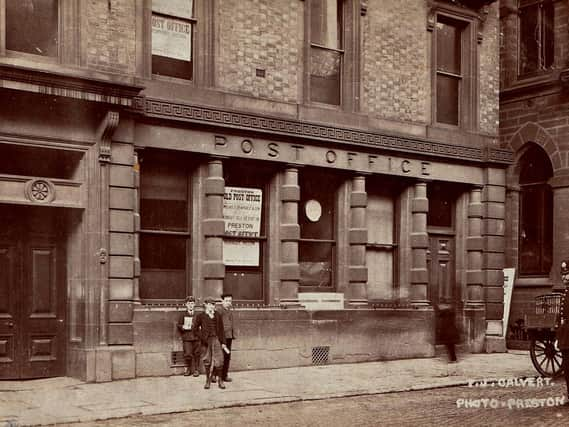Light-fingered Post Office clerk in Preston caught in sting operation


James Holland, the chief night clerk at the Preston Post Office, was before the magistrates in the Preston police court in mid-July 1871 charged with stealing a post letter containing 180 postage stamps which ought to have been delivered to Liverpool.
In recent months letters and valuables had been missed and an investigate begun, leading to the forwarding of an envelope containing stamps to be tracked by officials.
Advertisement
Hide AdAdvertisement
Hide AdAccording to the prosecution Mr William Henry Mulock, a travelling officer of the Post Office, stationed in London had forwarded a number of stamps to Southport intended for an address in Liverpool. The envelope had been received in Southport and dispatched to Preston where Holland had attended to it. However, when the postbag containing the envelope arrived in Liverpool most of the stamps were missing.
Consequently, Mr. Mulock and a post office constable proceeded to Preston and the Great Avenham Street home of the accused, accompanied by local detective P.D. Dawson. Holland who had finished his shift at 6 o’clock that morning was still in bed when they arrived at 11 o’clock and when confronted admitted dealing with the mail from Southport.
The visitors had the authority to search his home which they did and in various pockets of his clothing they found a number of stamps, including many that had been marked with invisible ink by Mr. Mulock. Mr. Blackhurst on behalf of the accused challenged some of the submissions made by the prosecution that refered to other alleged thefts.
When the Mayor Miles Myres asked Holland if he wished to say anything he declined, having been advised by Mr. Blackhurst to reserve his defence. The hearing concluded with Holland, aged 47, who had worked for the Post Office for 17 years, being committed to take his trial at the next Liverpool Assizes.
Advertisement
Hide AdAdvertisement
Hide AdThe trial took place in early August 1871 before His Lordship Baron Martin and the prosecution was led by Mr. Pickering QC the Attorney-General for the County Palatine, who repeated much of the evidence heard at the Preston hearing.
Mr. Torr, who represented the accused, argued that because the envelope had not been posted in the usual manner it was not a post letter as such within the meaning of the Act of Parliament. Claiming that Holland was only guilty of common larceny. However, His Lordship over ruled the objection and the jury returned a guilty verdict. Holland was then informed that he would go to penal servitude for five years.
At the time the Preston Post Office operated from newly constructed premises on Fishergate next to the Preston Gas showrooms, having prior to 1870 been located on Lancaster Road.
Ten years later the post office staff under the guidance of Postmaster William Drennan numbered 92 along with18 letter carriers, 20 pillar boxes and 7 branch post offices within the old borough boundaries.